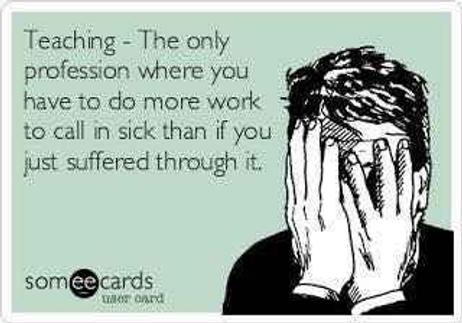School hasn't been in regular session in Madison this month. Teachers are calling in "sick" in force, leaving some schools no choice but to close their doors for a day. Why the exodus from Wisconsin public schools? Teachers are angry – about proposed cuts to their benefits and, more importantly, proposed reductions to their union rights. This article will explore the explosive situation in Wisconsin and what may be done to ease tensions in the public schools across the state.
Budgets and Benefits and Bargaining, Oh My!
The problems in public schools around Wisconsin have been brewing for some time. Like many others around the country, this state is facing a huge budget shortfall and has been faced with the difficult job of slashing the current budget in hopes of staying afloat financially. While plenty of line items have been the object of discussion during this process, the one that has garnered the most attention in recent weeks has been the reduction of teacher benefits. According to a recent report in the New York Times, Scott Walker, the Republican governor of Wisconsin since the beginning of the year, has proposed cuts to teacher benefits and collective bargaining rights.
Governor Walker has stated that he has no choice since Wisconsin is facing a state budget deficit of $137 million this year alone. At the current rate, Walker predicts that the hole could grow to $3.6 billion in just two years. To alleviate the crunch, Walker is looking for ways to cut back on spending – but teachers are arguing that reducing their benefits is not the right way to get the job done.
This video reports on current teacher shortage issues.
What the Cuts Mean to Teachers
The first part of the budget cuts, forcing teachers to pay more for health insurance, would reduce teacher's take-home pay by around seven percent. While teachers are not thrilled about the prospect of smaller paychecks, they are even more concerned about the second part of the equation: reducing the collective bargaining power of teacher unions. Instead of allowing teacher unions to negotiate on items like health insurance options and setting school year dates, the unions would be restricted to bargaining only on basic wages.
Kevin Gibbons, a union leader representing teaching assistants, told the Times, "I think Governor Walker is using the financial crisis as an excuse to attack unions, and if Wisconsin goes, what will be next?"
There is concern that if this proposal becomes reality, other Republican governors across the country might follow Walker's lead, leaving many other teachers with less pay and negotiating abilities. Because there is tremendous fear in Wisconsin about how this proposal could affect public education in the state, public educators have taken drastic measures in many Wisconsin school districts.
The "Sick" Out
In an article in the Wisconsin State Journal, the state's largest teachers' union last week called on teachers to attend rallies on Thursday and Friday. Because the rallies were held during the school day, many teachers decided whether to call in "sick" and attend the rally or head to work as usual. Union leaders said the issue was too significant to ignore.
"This is not about protecting our pay and our benefits," Mary Bell, president of the Wisconsin Education Association Council, said in the Journal. "It is about protecting our right to bargain collectively." While Bell denies endorsing any coordinated action that could result in the closing of public schools for a day, she did encourage any teachers who "could" attend the rally to do so.
As it turns out, more than 2,600 public teachers had called in sick Tuesday night for a "sick-out" on Wednesday to head to Capitol Hill and protest the proposed teacher cuts, according to the Journal report. On Wednesday night, teachers were also encouraged to attend the rallies on Thursday and Friday.
An article at JS Online reports that the head of the Milwaukee teachers union asked public schools in the city to close on Thursday, due to the danger of allowing students to attend class with so many teachers away from their posts. At that time, a spokesperson for the Milwaukee school district stated that school was still scheduled for those days. However, some individual schools did decide to close to protect the safety of the students.
This video offers an explanation for teachers calling in sick.
Illegal Strike or Legal Protest?
Some in Wisconsin questioned whether the Wednesday protests violated a law prohibiting public school teachers from striking. A different report in the Wisconsin State Journal stated that some officials were looking into whether teachers had crossed the legal line when they headed to Capitol Hill.
Madison school officials have yet to comment on the case. Peter Davis, legal counsel with the Wisconsin Employment Relations Commission, stated that he was not in a position to comment either. However, Davis did tell the Journal that a "strike includes any concerted work stoppage by municipal employees, any concerted interruption of operation of services, or any concerted refusal to work or perform normal duties to enforce demands on a municipal employer."
The battle continues to rage in Wisconsin, and the solution that is finally presented could have national repercussions, with many other states facing similar budget dilemmas. With all eyes on Wisconsin public schools, the hope is that the students of that state will be able to continue their education with minimal interruption.
Questions? Contact us on Facebook. @publicschoolreview












